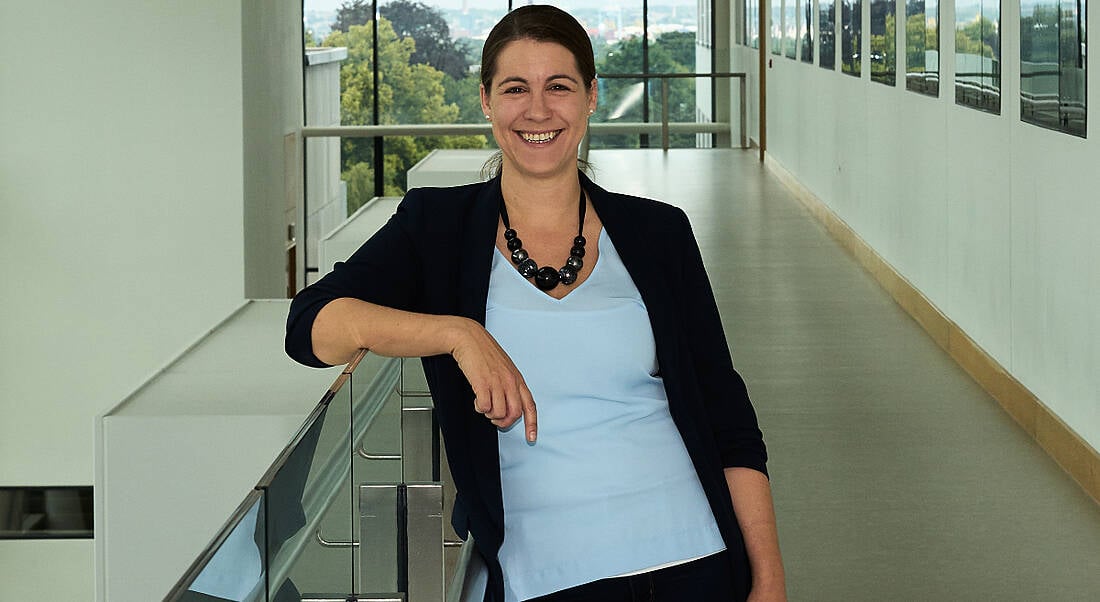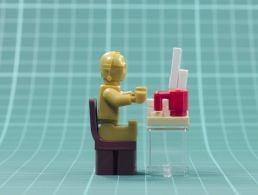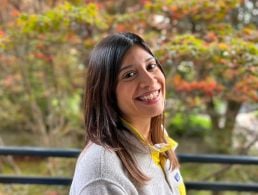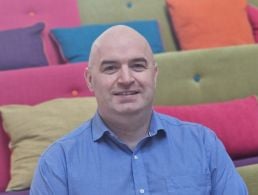To coincide with the release of the Ghostbusters reboot – which features an all-female team of scientists (and paranormal researchers) – we’re talking to real-life female scientists and researchers.
Here, Dr Jennifer Craig, centre manager at the Irish Centre for Research in Applied Geosciences (iCRAG), tells us about the path that led her to a successful career in research.
What first stirred your interest in a career in research?
From an early age, I have been interested in how things work, and in science in general. Without either of us knowing it, the day my dad got me my first chemistry set determined my future career path. In using the set, I always wanted to find out how things worked and to explore my natural curiosity.
Such curiosity is fundamental in any aspect of science – it is what drives the whole process.
Alongside this, the key to scientific progress is the ability to manage large projects and teams of people, so that the science that we do leads to real impact. It was during my first postdoc that I had the opportunity to be lab manager. This experience, coupled with managing students, was when I first realised I liked the idea of managing multiple projects and people in general, and ultimately led me to my current position as centre manager in iCRAG.
What steps led you to the role you now have?
I started out my research life doing a BSc in chemistry, which immediately led to a PhD in bioelectrochemistry – an area I had been particularly interested in during my last year of my degree. Following a few years of postdoc, I got my first job as a project manager, managing a research cluster in neurotherapeutics.
During this time, I completed the Exec MBA part-time in the Smurfit Business School.
This combination of skills enabled me to take a role as CEO of a start-up company for a number of years, before I braved going out on my own as a life sciences consultant.
During this period, I realised I was missing certain experience, so decided, after a number of years, to move into a role in a university research support office – University College Dublin Research and Innovation – which enabled me to set up the EU supports centrally for the university.
It was a combination of all of these skills and experience that positioned me well for my role in iCRAG.
What were the biggest surprises or challenges you encountered on your career path?
One of the biggest surprises I experienced – and also the biggest learning curve – was during my time as a life science consultant. I took a big risk and went about setting up my own company, which unfortunately I had to let go. I worked for as long as I could on my ideas with no salary, but unfortunately I could no longer survive and had to find a different job.
I look back on this time not with regret, but instead with pride at what I did achieve.
Was there any one person who was particularly influential as your career developed?
I would say there were many, and I simply couldn’t pick one out. I have been lucky to have had wonderful and supportive family, friends and mentors throughout my career so far, all of whom I still remain in touch with and talk to on a regular basis.
What do you enjoy about your job?
I love the fact that every day brings something new or different into the mix. It’s often a complete rollercoaster ride.
Yes, it’s true that there are many aspects of the role that are somewhat ‘daily grind’, but I am so lucky to be at the helm of building and developing such a new and exciting research centre that has so many new challenges so often. These challenge me to use all the aspects of my skill-set, but also ensure that I never stop learning.
What aspects of your personality do you feel make you suited to this job?
I’m ultimately a people person and I enjoy working with so many diverse and interesting people daily. I’m a team player and I love working collaboratively to achieve something really great. I think well-managed and supported science is incredibly important, and I’m passionate to ensure that this is the case.
How has iCRAG supported you on your career path?
iCRAG is more than supportive of me in further developing my skills, which for me – at this point in my career – often takes the form of chairing committees or evaluating high-level EU programmes. Taking part in such evaluation programmes gives me a deep insight into what differentiates a good grant application from an excellent one. This is a very useful skill to have when managing a research centre that is determined to expand by bringing in new funding.
Alongside this, I am lucky to be afforded flexibility in my role, which, as a mum of two young children, is immensely important to me.
What advice would you give to those considering a career in research, or just starting out in one?
A career in science can open so many doors, and not just in the specific discipline you studied. It’s a brilliant springboard into so many areas. If you had told me when I started in my chemistry degree that, one day, I would be managing a €26m research centre in applied geosciences, I wouldn’t have believed you.
Don’t be afraid to try something new or different, and do believe that the skills you have acquired are immensely transferrable. Use your network – it’s incredibly important. Last, but not least, don’t be afraid of failure. It is in fact one of the best ways to succeed!
Looking for jobs in tech or science? Check out our Employer Profiles for information on companies hiring right now.




